Righteous Vasyl Nazarenko speaks on WWII and the ongoing Russo-Ukrainian war
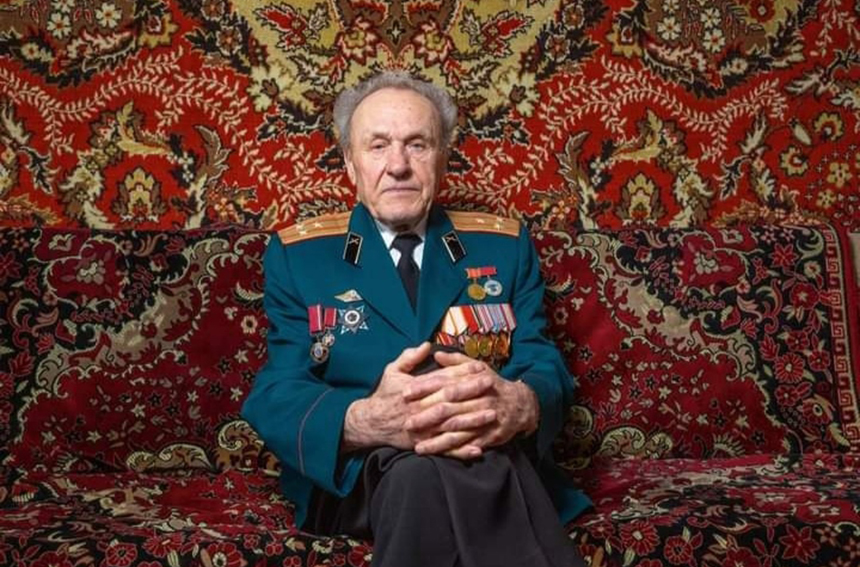
We continue our series of publications about the Ukrainian Righteous Among the Nations. Most of the 2,700 Ukrainian Righteous recognized by Yad Vashem have passed away, and only four are still with us. Three of them have remained in Ukraine since 24 February 2022 despite numerous invitations from Israel and Jewish communities in other countries of the world.
Righteous Among the Nations Vasyl Nazarenko lives in Kyiv with his wife Lida. We wrote about his heroic deed in the text about the Righteous Among the Nations from Vinnytsia Oblast.
In 1941, Moisei and Lukeria Nazarenko, with their children Yefrosynia, Nadiia, and Vasyl, sheltered Aniuta (Eti) Jadushliver and her daughter Beti. The families did not know each other before the war, and the Nazarenkos risked their all to save two Jewish women who were strangers to them. Yad Vashem awarded the Righteous Among the Nations title to the Nazarenko family on 2 January 1995.
Vasyl Nazarenko, 94, served in the military all his life. He has agreed to answer the questions from the Ukrainian Jewish Encounter (UJE) about World War II and share his views on the ongoing Russo-Ukrainian war.
On World War II and the rescue of Jews
What was the relationship between Ukrainians and Jews like before the war in the locality where you lived?
Before the war, I knew only one Jewish family who lived in our village of Viitivtsi, Vinnytsia Oblast. I remember they had a horse, and the father worked as a blacksmith on a collective farm, making implements for working the land. He worked there in the winter and would go elsewhere in search of extra income in the summer. They were a good family and always gave us candies as treats.
What helped your family hide Etia and Betia Jadushliver?
The main thing was mutual understanding between two village families, Ukrainian and Jewish. Kindness, the memory of which lives on today.
In 1941, I was 12 years old. Before the war, we were not familiar with these people (whom we rescued). When they were hiding in our house, I think it was hard for them not to be able to go outside during the day. Otherwise, they could be detected by the neighbors. So, Eti and Beti could go outside only in the evenings after dark. The neighboring families were unaware we had Jews living with us.
Did they follow Jewish traditions?
I was little and could not understand many things, but I definitely remember that they had their own food, which they cooked themselves. My late mother let them do whatever they needed in the kitchen.
How difficult were the conditions?
Before the war, we were very poor. Aunt Aniuta [Eti. — Transl.] said right away she would be helping to sew clothes for my sisters. She was a seamstress, and the girls had no new clothes. We had no electricity or gas then — nothing but the house.
Was your house searched?
Yes, there were searches, but G-d saved us.
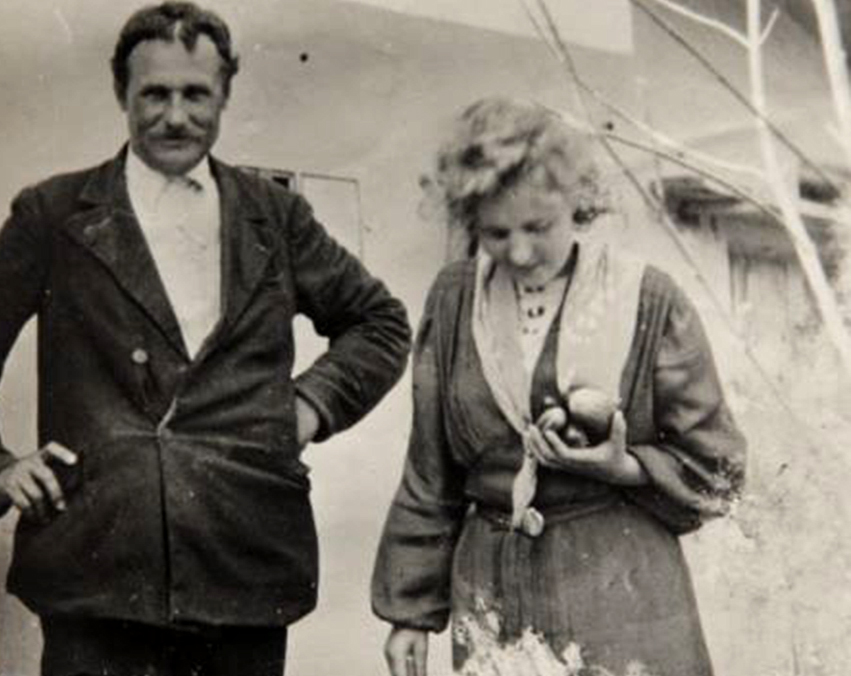
How did you feel about the Germans during World War II?
We were occupied in June 1941 and liberated first in January 1944 and then again in March 1944. We saw the Germans only marching in columns as they retreated in 1944. We had no contact with the Germans. During the entire period of occupation, we hardly saw them, except for one, Zimmerman, who was in charge of agriculture in our district. He had an office and managed taxes and produce. Everything went to the benefit of Germany.
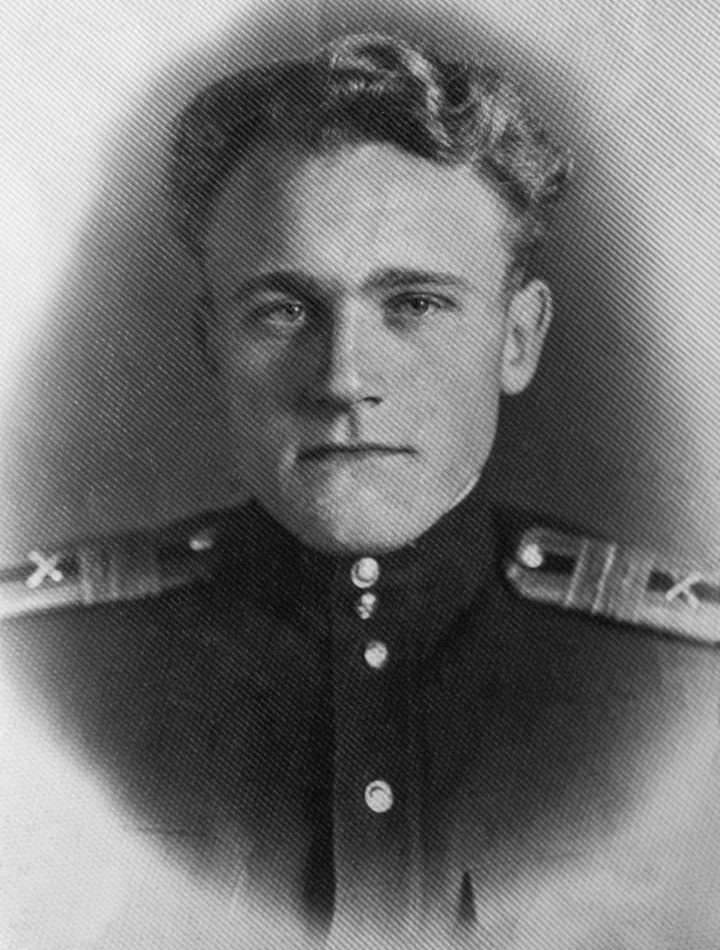
Zimmerman lived in the village of Popivka, rode in an open carriage, wore a military uniform, and communicated with all the villagers. I can't say that he was treated negatively.
Did you not feel threatened by the Germans?
We felt it, but we were more afraid of the police, composed of the locals who knew how things worked in our village. Being foreigners, the Germans did not understand many things, while the locals could find the Jews and report on us.
How did your relationship with the people you rescued develop after the war?
We have been friends all our lives. After we were liberated from the Germans, they left and started writing letters to us after a while. Aunt Aniuta passed away in 1976, and her daughter Betia in 2005 in Germany. Beti's son Jan lived in Israel and moved around. Our children are still friends. Yakov is 67 years old and is currently in Germany.
On the ongoing Russo-Ukrainian war
What was your reaction when the war broke out on 24 February 2022?
Condemnation. This is a tragedy for me. This should not happen. There should be understanding between people, fraternity, and mutual assistance in our time. We must help each other in everything: how to grow crops best and create conditions for science.
Why didn't you leave Ukraine when the war started?
I felt the ghosts of World War II. Where will I go at my age? We were invited by the Israeli embassy (the Righteous Among the Nations have the right to Israeli citizenship), but my wife and I are not ready to go to another country. We are past 90.
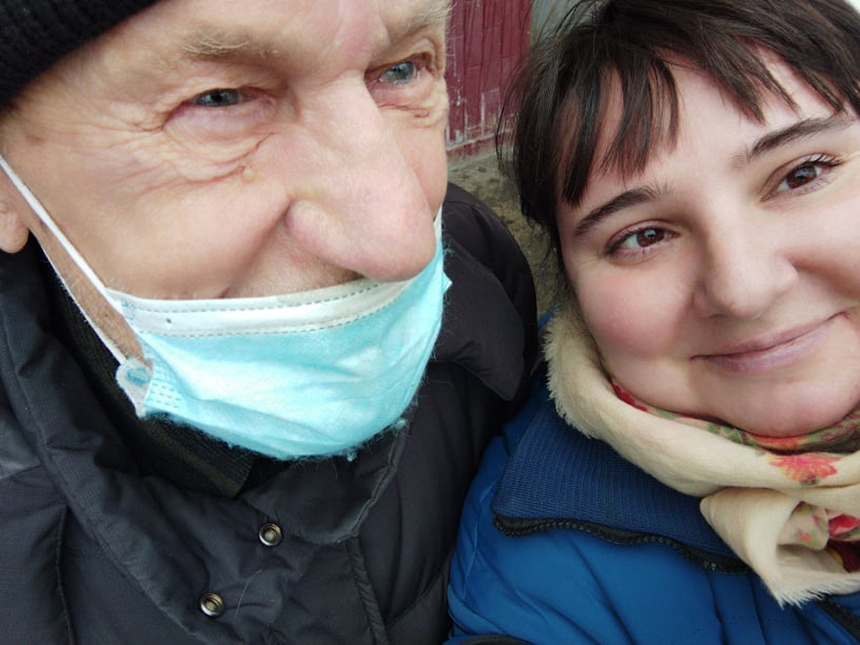
What is the difference between World War II and this war?
I participated in the Great Patriotic War but have not taken part in this war.
The difference between wars is enormous. All the great work, everything created by the people — infrastructure, buildings — is being destroyed now. What for?
There was a front line in World War II, but no front line exists now. Only the front line was shelled back then, while now missiles are launched from any point in, both from the sea and from land. And they fly over the entire territory of Ukraine, over Kyiv and Lviv. Civilians are dying all over the country. This is the main difference.
What consequences could Russia's possible dominance in this war bring to the world?
I don't know the answer to this one. I never thought about it. There should be humanity and mutual understanding rather than dominance.
What do these wars have in common?
There is nothing good in war. People die, and widows and orphans remain. Why is this necessary? I believe war is an unnecessary tragedy. People should not be killed undeservedly.
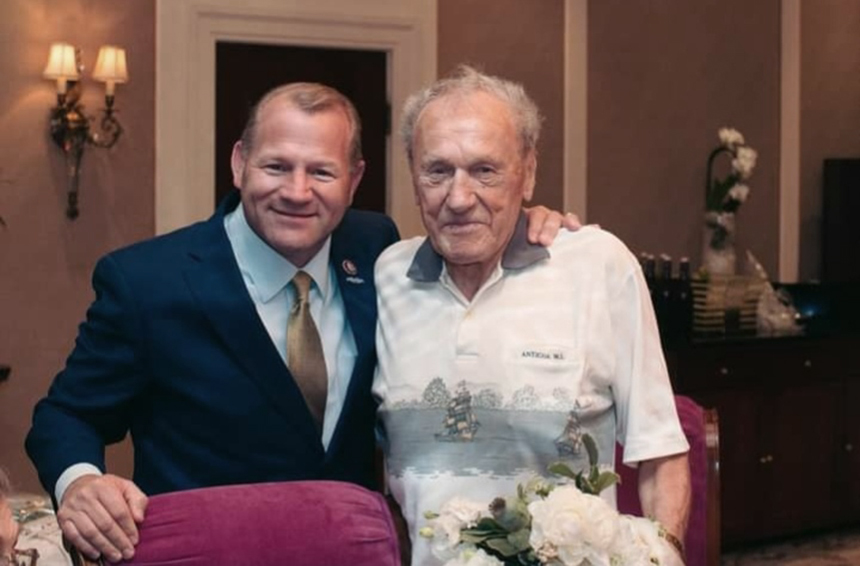
How often do Jewish communities invite you?
We are sometimes invited to events organized by Jewish communities, such as Rabbi Markowitz's community. We met with French Jewish children, Tzahal soldiers, and American congressmen. We are also invited to Babyn Yar commemoration events. In 2023, I attended the meeting of President Zelensky with the families of the Righteous Among the Nations, which took place on 29 September, Remembrance Day for Babyn Yar victims.
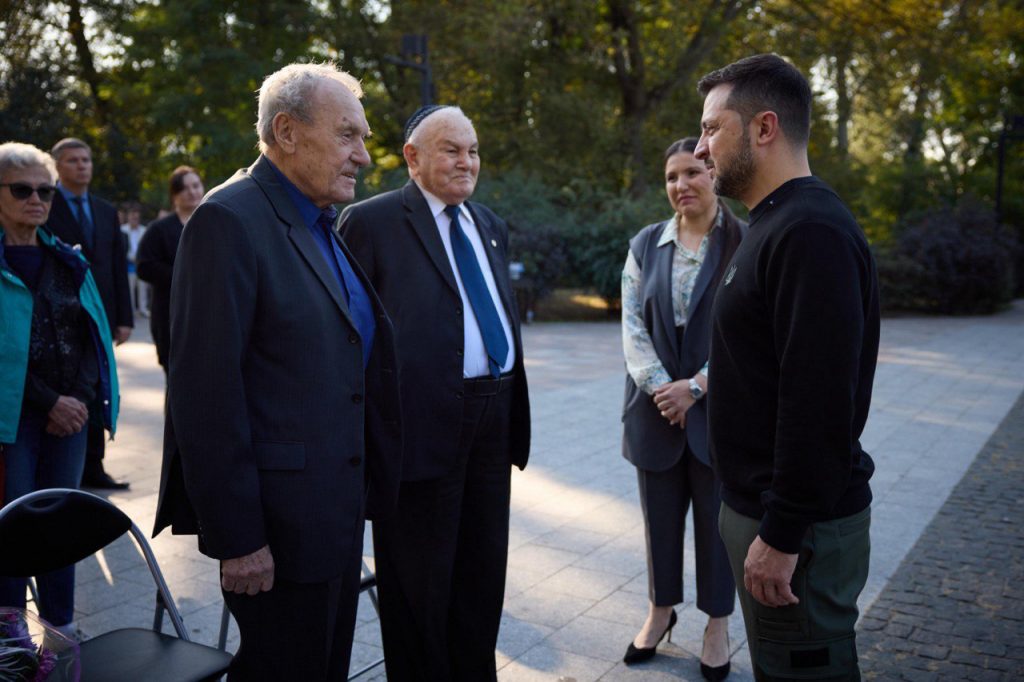
At one meeting, we were asked: "How much did the rescued persons pay you?" We didn't know them before the war, and nobody paid anything. We were then asked how many Jews lived in our cellar. But they lived in my parents' room, not in the basement, only hiding in the barn during searches.
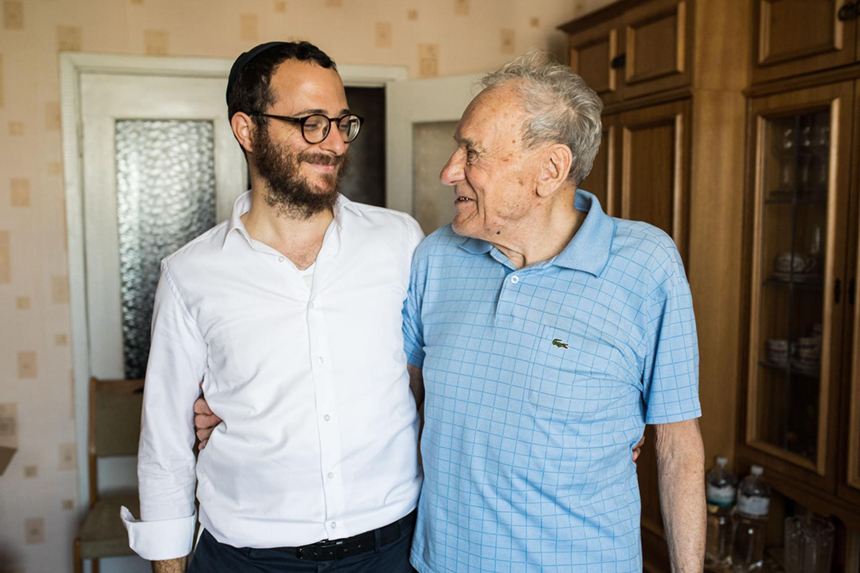
What is the relationship between Jews and Ukrainians today?
I see no difference between these nations. Mutual understanding must be maintained between people. I lived and served in the army in the Far East for many years. I had friends among Jews.
Is it possible to provide such upbringing and education to children so that they do not start new wars in the future?
This will require a change in ideology and the course of education. People's development will need to be stimulated in a different direction. In almost all states, people in power are trying to obtain more powerful weapons. Why not create material goods for people instead of weapons? People should be educated on the foundation of a peaceful ideology.
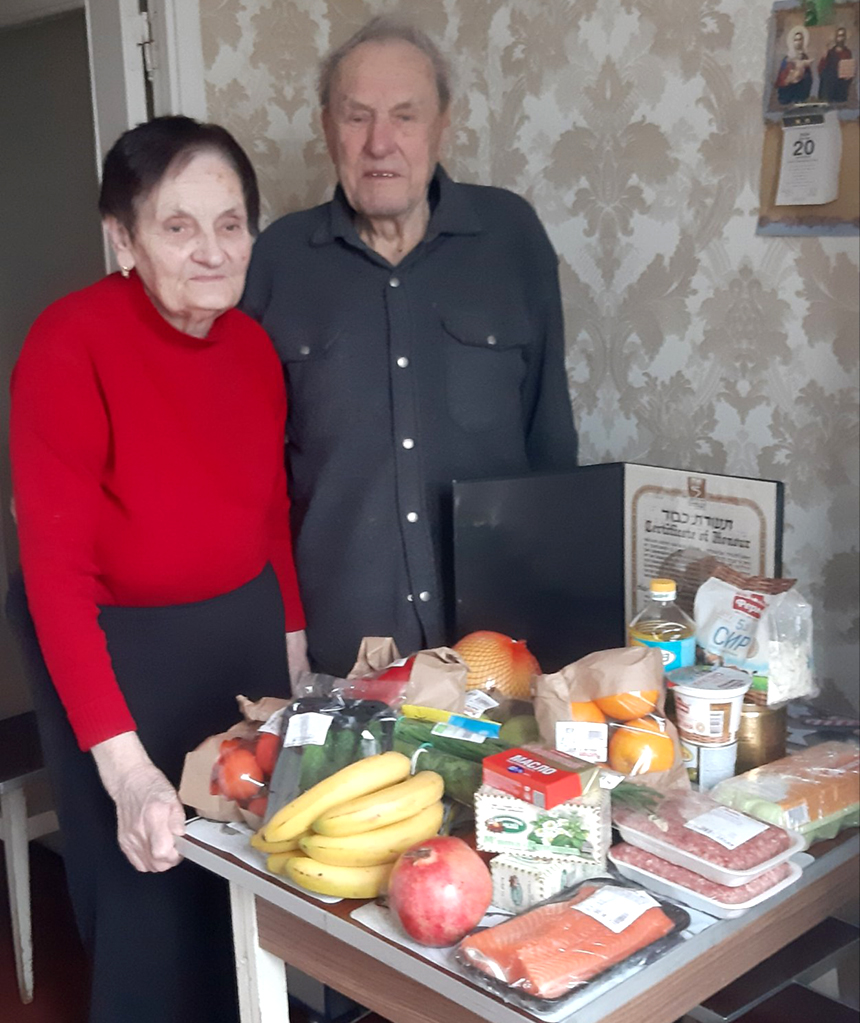
What books do you like to read?
It so happened that life forced me to develop a love for reading military memoirs and a love for military songs. I served in the Soviet Army all my life and read the memoirs of other soldiers.
Thank you very much for taking the time to speak with us.
The Word of the Righteous film about the heroic deed of the Nazarenko family:
Marharyta Ormotsadze, Word of the Righteous
Marharyta Ormotsadze
Marharyta Ormotsadze is a co-founder/producer of the Word of the Righteous project, which tells about the valor of Ukrainians who saved Jews throughout Ukraine during the Holocaust.



















